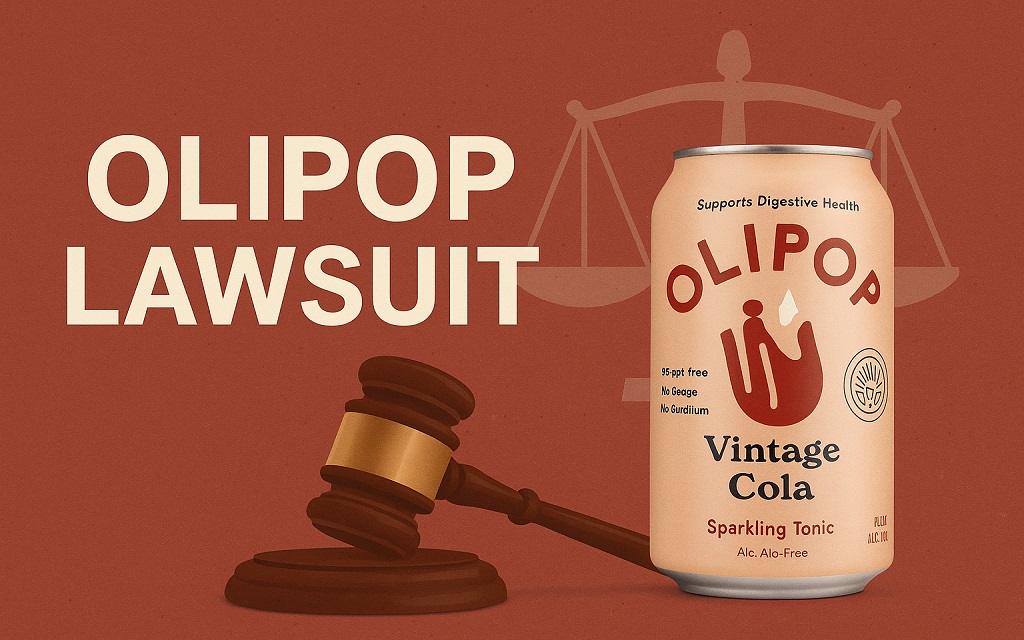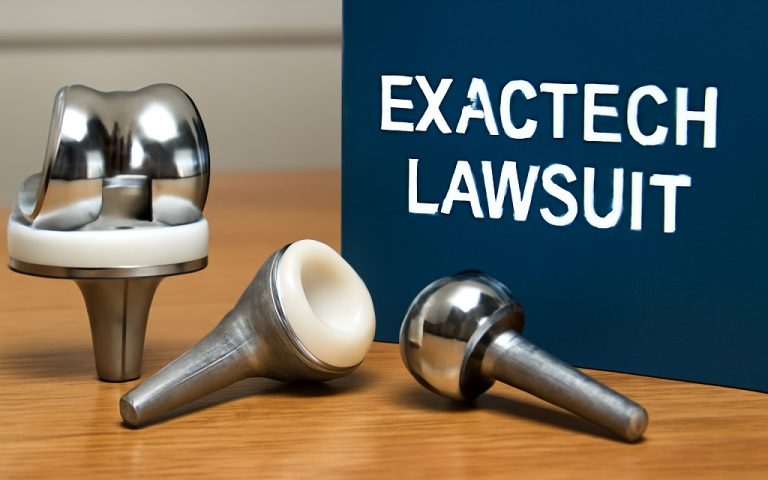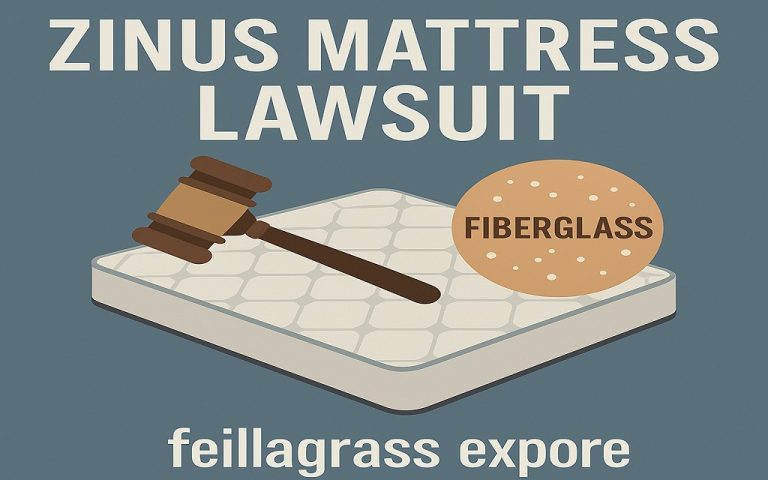Last updated: October 20, 2025
Quick take: There’s no verified consumer class action against Olipop over “gut health” or fiber claims as of October 20, 2025. The documented matter is a California Proposition 65 case (lead/mercury warnings) brought by Environmental Research Center (ERC) that settled and resulted in a court judgment on August 21, 2025. This is distinct from competitor Poppi’s separate $8.9M false-advertising settlement (final approval hearing Nov 20, 2025).
Status at a glance
Prop 65 (CA): Environmental Research Center, Inc. v. Olipop Inc. — Complaint filed Oct 24, 2024 (Alameda 24CV096887) · Settlement reported to AG Jun 2, 2025 · Judgment entered Aug 21, 2025. Relief: Injunction on lead/mercury “Covered Products” + $7,500 civil penalty + $67,500 fees. All filings are publicly available on the CA Attorney General website.
Consumer class action over “gut-health/fiber” claims (Olipop): None verified on state/federal dockets or reputable coverage as of Oct 20, 2025. (Don’t confuse with Poppi.)
Context — Poppi (competitor): $8.9M false-advertising settlement; final approval hearing Nov 20, 2025 (official site).
Confused by headlines about an “Olipop lawsuit”? Here’s what’s actually on the record. The only verified lawsuit involving Olipop is a Proposition 65 case in California alleging failure to provide warnings for lead and mercury. That case was filed on Oct 24, 2024, settled in mid-2025, and a judgment was entered on Aug 21, 2025, requiring injunctive measures and payments. You can read the notice, complaint, settlement, and judgment on the California Attorney General’s Prop 65 portal.
By contrast, we do not find a filed consumer class action against Olipop over “gut health” or fiber claims. Some outlets conflate Olipop with Poppi, which separately agreed to an $8.9M class-action settlement over marketing claims; that case’s final approval hearing is set for Nov 20, 2025 (see the official settlement website).
What was the Olipop Case about?
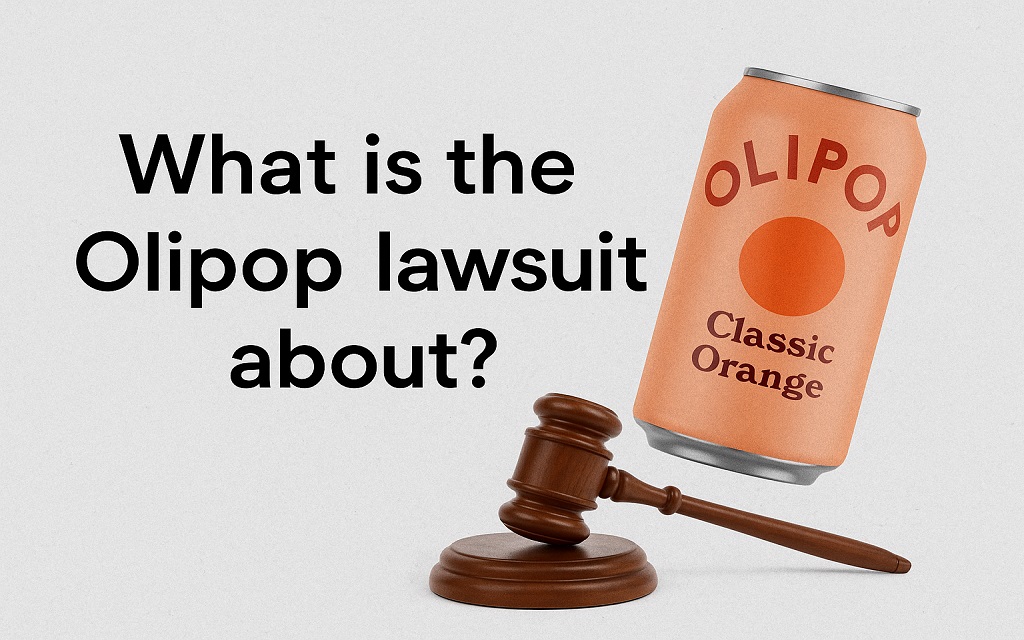
It was a California Proposition 65 failure-to-warn action about lead and mercury—not a consumer class action over fiber or “gut health” claims. The case ended in a court-entered judgment on Aug 21, 2025, pursuant to a settlement.
You can compare this to the Poppi lawsuit. That brand advertised itself as “gut healthy” while providing only about 2 grams of fiber per can. Plaintiffs argued that this was insufficient for a meaningful benefit. The settlement reached 8.9 million dollars in 2025.
Why should you care about the Olipop lawsuit?
It is essential to know that Olipop holds a significant share of the prebiotic soda market. Industry data shows more than 400 million dollars in sales in 2024. The brand is sold in over 50,000 U.S. retail outlets. Such reach means a court ruling could affect a large consumer base.
You can also see that the timing coincides with major moves in the sector. Coca-Cola launched Pop in 2025, offering 6 grams of fiber plus Vitamin C and zinc per can. PepsiCo purchased Poppi for about 1.95 billion dollars in the same year. The legal scrutiny of Olipop could shape public trust across the category.
How did the lawsuit start?
All primary filings (notice, complaint, settlement, judgment) are public on the CA Attorney General’s Prop 65 portal. In similar cases, plaintiffs file in state courts that have robust consumer protection laws. California and New York are common venues for such litigation.
What legal issues could arise?
It is essential to know that several claims often appear in marketing lawsuits:
- False advertising under state law
- Breach of express warranty
- Unjust enrichment
- Injunctive relief requests
- Monetary damages or restitution
You can also expect disputes over class certification. Courts decide if all class members suffered similar harm.
How does the Poppi Lawsuit inform this one?
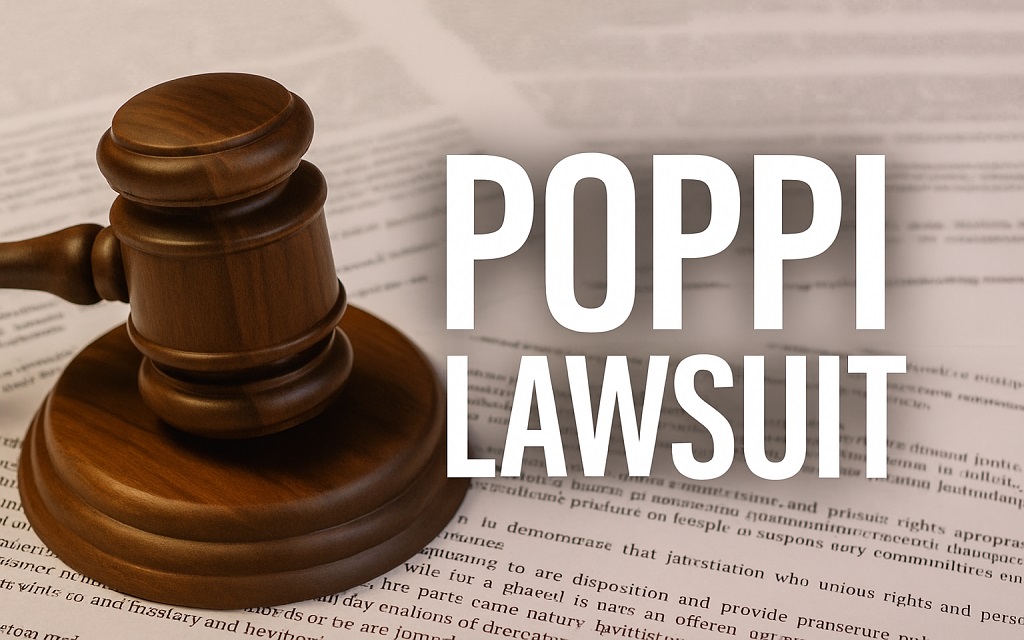
You can learn from the Poppi settlement when assessing Olipop’s potential risk. The Poppi lawsuit offered up to $0.75 per can for claims without proof of purchase, capped at $16 per consumer. The settlement also required adjustments in marketing language to avoid overstating benefits. The final approval hearing is scheduled for November 20, 2025.
It is essential to note that Olipop, with a higher fiber content per can, may rely on scientific studies and third-party certifications to support its claims. However, legal exposure can still exist if courts find marketing language misleading to a reasonable consumer.
What evidence could matter most?
You should expect product labels, advertising scripts, and website claims to be central. Expert witnesses may review fiber content levels and digestive health claims. Third-party lab testing could confirm or dispute Olipop’s stated numbers. Courts might also consider peer-reviewed research on fiber dosage and its impact on the gut microbiome.
It is important to note that Olipop highlights a Purdue University study and holds NutraStrong Prebiotic-Verified status. These credentials could play a role in the defense.
How might the case progress?
You can expect initial motions, possibly to dismiss the case. If those fail, discovery will begin. That stage can include depositions of executives, internal emails, and market research analysis. Settlement talks often happen before trial.
It is crucial to prepare for years of proceedings. Many class actions run from filing to resolution over three to five years.
How does the lawsuit connect to the bigger market?
You should see that the prebiotic soda market is expanding rapidly. Analysts value it at 262 million dollars in 2024, with projections to 545.5 million dollars by 2034. Strong growth has drawn major beverage companies into the segment.
Olipop differentiates itself with 9 grams of fiber per can. This figure is higher than Simply Pop’s 6 grams and Poppi’s 2 grams. That strength also places it in the spotlight for scrutiny.
Competitor Comparison Table (Fiber Content & Legal Status)
| Brand | Fiber/can | Legal status (as of Oct 20, 2025) | Parent | First launch |
|---|---|---|---|---|
| Olipop | ~9g | Prop 65 judgment entered Aug 21, 2025 (lead/mercury warnings); no verified consumer class action on “gut health/fiber” | Independent | 2018 |
| Poppi | ~2g | $8.9M false-advertising settlement; final approval hearing Nov 20, 2025 | PepsiCo | 2020 |
| Simply Pop | 6g | No known lawsuits | Coca-Cola | 2025 |
What consumer concerns should you keep in mind?
You should ask how much fiber delivers real health benefits. Nutrition experts recommend 25–38 grams daily for adults. A can of Olipop provides about one-third of the lower end of that range. That is significant for a beverage, but still less than whole food sources.
It is important to remember that too much inulin fiber can cause digestive discomfort in sensitive people. Some consumers report bloating or gas when increasing fiber intake too quickly.
What lessons emerge from past beverage lawsuits?
You can look at similar cases for guidance. Several juice companies have faced litigation over claims about vitamin content. Tea brands have paid settlements over antioxidant levels. Energy drink companies have been challenged over performance claims.
It is essential to see that settlements often involve both financial payouts and label changes.
How can you protect your rights?
You should review labels and compare them with independent nutrition databases. If you feel misled, you can file a complaint with the FTC or your state attorney general’s office.
You can also keep purchase receipts. They can increase eligibility for payouts in a class-action settlement.
Projected Market Share Chart (Text Format)
- Olipop: Estimated 42% share of prebiotic soda sales in 2024
- Poppi: Estimated 35% share in 2024
- Other brands (including Simply Pop): Estimated 23% combined
How will this case affect the prebiotic soda market?
You should note that high-profile lawsuits can lead to voluntary label changes across the industry. Coca-Cola and PepsiCo may adjust claims on Simply Pop and Poppi to avoid similar risk. Smaller brands may reformulate or drop specific health terms.
It is essential to know that regulatory bodies can issue guidance after court rulings. Such guidance can affect marketing strategies for years.
Why should you follow this case to the end?
You can gain insight into how courts view modern health claims. That knowledge can help you make informed consumer decisions. You might also receive compensation if a settlement occurs.
It is essential to stay informed. Cases like this can reshape industry practices and consumer rights enforcement.
FAQs
Is Olipop good or bad for you?
Olipop can be a lower-sugar alternative to soda and offers fiber, but experts say it should not replace whole-food fiber sources.
What is the lawsuit about Olipop soda?
The Olipop lawsuit alleges misleading gut health claims and questions the accuracy of its fiber content labeling.
Why did Poppi get sued?
Poppi faced a lawsuit claiming its “gut healthy” marketing was misleading because each can had low fiber content.
What are the benefits of Poppi prebiotic soda?
Poppi offers a soda alternative with fewer calories and prebiotic fiber to support digestion.
Is kombucha better than probiotic soda?
Beneficial bacteria are added to a probiotic drink, while kombucha ferments naturally and may provide a broader range of probiotics.
Does Poppi help in the reduction of belly fat?
There is no proof that Poppi directly lowers stomach fat; diet and lifestyle choices play a significant role in weight loss.
Conclusion
The current Olipop lawsuit demonstrates increased regulatory focus on prebiotic beverage marketing, as well as scrutiny directed at a specific brand. Consumer trust in these items may be impacted, regulatory restrictions may be tightened, and labeling practices may change if the accusations are upheld in court. The recent Poppi settlement serves as a precise reference point for what might happen next.
As the market for prebiotic sodas grows and attracts major rivals like PepsiCo and Coca-Cola, businesses need to strike a balance between developing new products and using open, research-based advertising. For the time being, you should continue to get your daily fiber from whole foods and consider prebiotic drinks as an occasional option.
Disclaimer: This article provides a general overview of the Olipop lawsuit, based on publicly available information, and is intended for informational purposes only. It does not provide legal advice. You must consult a licensed attorney for any legal decisions.
Musarat Bano is a content writer for JudicialOcean.com who covers lawsuits, legal news, and general legal topics. Her work focuses on research-based, informational content developed from publicly available sources and is intended to support public awareness. She does not provide legal advice or professional legal services.

